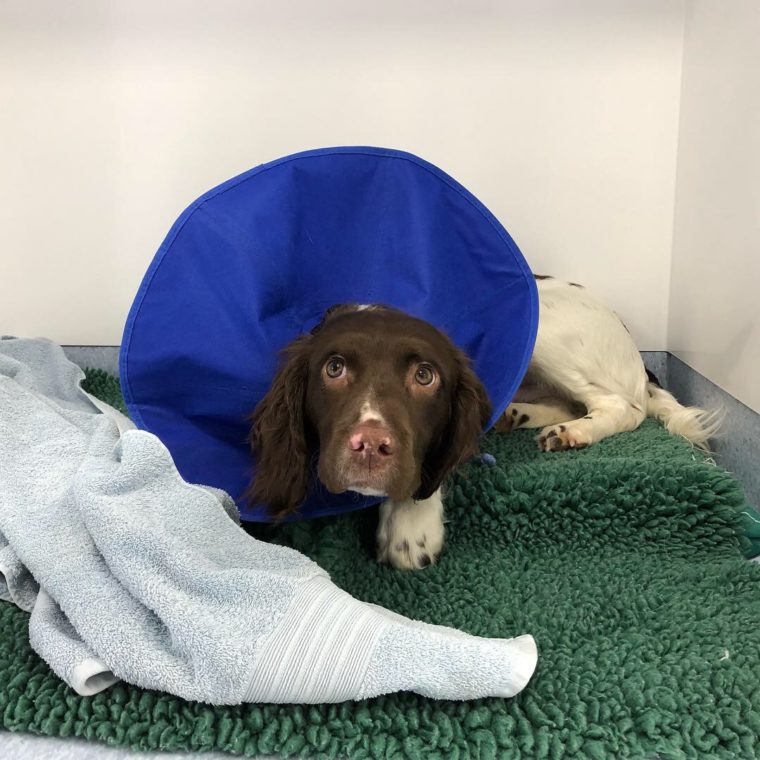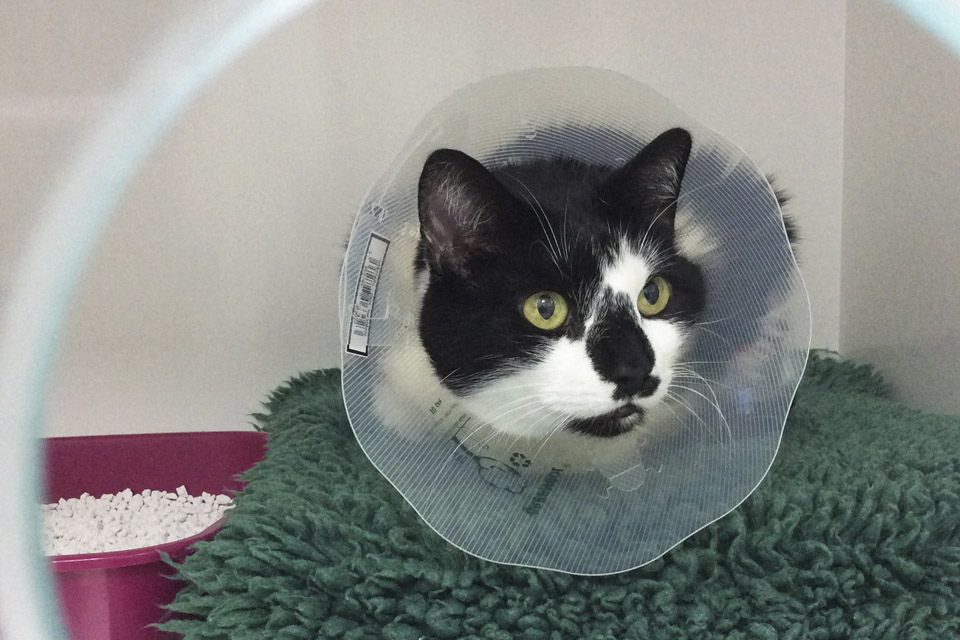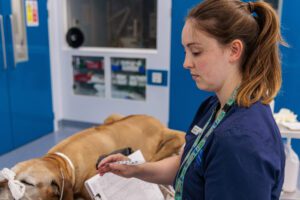To mark World Cancer Day, we collected the most commonly asked questions our team receives to shed light on some of the subjects families want to know about when they find out their animal has cancer.
1. How do pets cope with cancer?
The most important thing to remember is that your pet does not know they have cancer. They may feel a little bit under the weather and a bit lethargic, but unlike humans, they don’t have the big ‘C’ word looming over their heads. Pets are also often influenced by their people’s mood, so one of the most important things you can do for your pet is to remain as positive and normal as possible. We are not just here to treat your pet, we are here to support you through this difficult time.
2. Are certain breeds more prone to developing cancer?
As with humans, anyone can develop cancer, however certain breeds are more susceptible to specific types of cancers than others. See the list below as a guide:
- Mast cell tumours – Labradors, Flat Coat Retrievers, Golden Retrievers
- Anal sac carcinoma – Cocker Spaniels
- Osteosarcoma – Generally larger breeds such as Great Danes, Irish Wolf Hounds & Newfoundlands
- Lymphoma – Golden Retrievers, Boxers, cats
3. Is pet cancer contagious to other people or animals?
Not at all. Cancer is caused by cells in the body mutating and is therefore created within the body and cannot be passed on, even in blood or saliva.
4. Is it just dogs and cats that get cancer?
No, all animals have the potential of developing cancer. Here at Fitzpatrick Referrals we generally see small companion animals including dogs, cats and the occasional rabbit but we have given advice on all sorts of animals with cancer.
5. How do pets cope with having total limb amputation?
Most of the patients that we see are up and about within 24 hours after surgery, however, each patient is different and some need physiotherapy after surgery to get them up and moving again. Pets on three legs have great potential to live a happy and full life, so much so that often people cannot tell the difference!
6. Do all pets with cancer have to have chemotherapy?
No, not all pets have to have chemotherapy. Some cancers can be removed with just surgery. It’s very much dependent on exactly what type of cancer your pet has and the treatment plan recommended by your oncologist; it’s different in every patient and uniquely tailored to their best interests.
7. How is chemotherapy administered?
Chemotherapy can be administered in multiple ways and the type is dependent on what type of cancer your pet has. There are different of ways of administering these drugs; orally in the form of a pill, by injection, intravenously or intra-arterially.
8. Do pets get sick after chemotherapy?
Sometimes, but not to the same extent that humans do. If this occurs it’s normally a few days following chemotherapy, we often prescribe anti-sickness drugs. This normally presents as tiredness and occasionally nausea.

9. Can my pet with cancer mix with our other pets after having chemotherapy?
Yes. It’s safe for your pet to mix with other pets after chemotherapy and is encouraged – it is important that your pet lives life as normally as possible as long as they feel up to it. They will let you know what they are ready for.
10. Do pets lose their hair after chemotherapy?
Generally, most pets don’t lose their hair like humans do while undergoing chemotherapy treatment. The thickness of their hair/coat may alter slightly, or sometimes even the colour. Some dogs with continuously growing coats such as Poodles, Sheep Dogs, Border Collies can have more dramatic hair loss. Some cats may lose their whiskers.
11. How do you know if chemotherapy is working?
Our team will work closely with your local vet to monitor your pet’s treatment throughout the time your pet is a patient with us. Patients receiving chemotherapy will often have blood tests and we conduct imagery to monitor the effects of the chemotherapy on your pet’s cancer.
If you have any health concerns about your pet, please seek advice from your vet.
Fitzpatrick Referrals’ orthopaedic service accepts referrals for bone tumour cases wishing to consider limb sparing treatment options.
4 minute read
In this article






